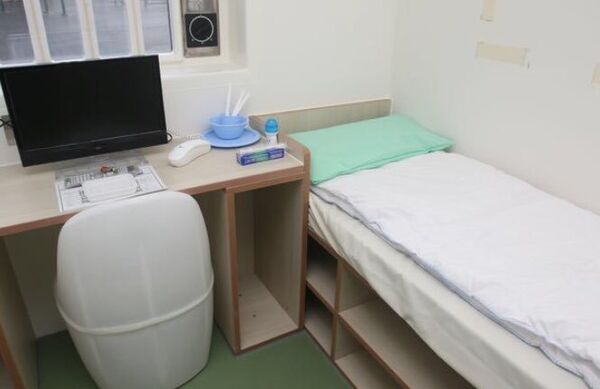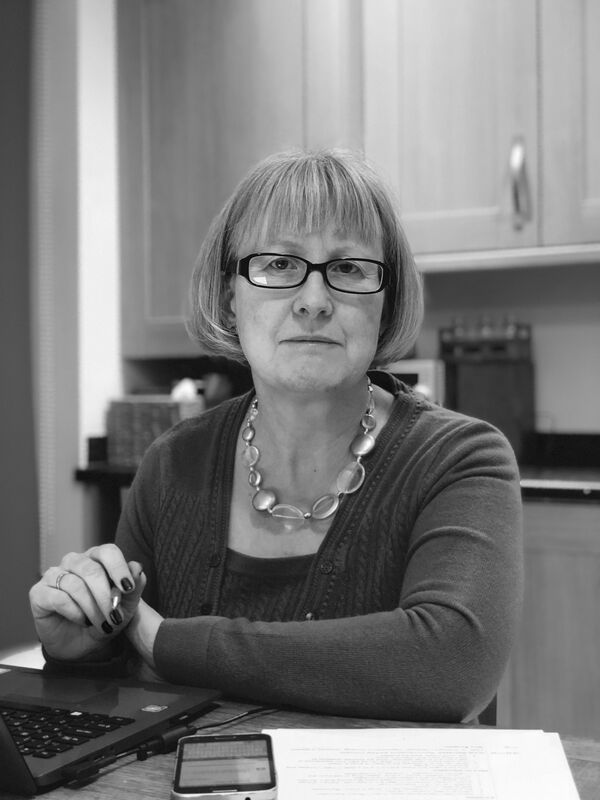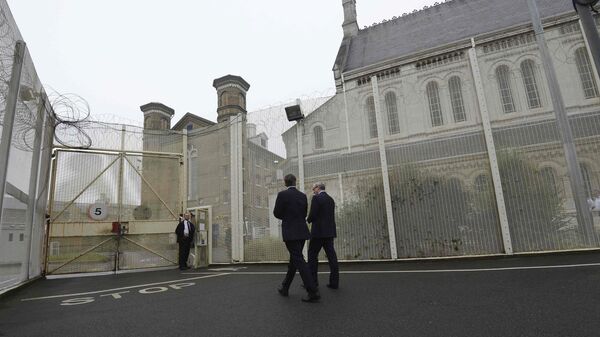In January 2018, inspectors at HMP Liverpool, UK said conditions were the "worst [they'd] ever seen" — inmates lived among dirt, litter, rats and cockroaches, occupying cells "dangerous to live in". The resultant report was but the latest in a long line of damning official appraisals of detention centers across the country, dating back several years.
Inmates haven't been taking this parlous state of affairs lying down — rioting, takeovers and tumult have blighted prisons countrywide on an almost monthly basis ever since the concluding quarter of 2016. Increasingly, an uncomfortable reality the UK government has long sought to ignore and suppress is becoming inarguable — the country's prisons are in a state of crisis, and urgently cry out for reform. The only questions are how they reached this point, and what can be done. Seeking an inside view, Sputnik spoke to three individuals with unique insight on the state of modern prisons in the UK.
Prison Diaries
Stringent rules on media access to UK prisons means it's difficult for journalists to speak to prisoners, much less see the inside of one of the UK's 150 detention centers. Still, there are other ways to contact serving inmates — unbelievable as it may seem, inmates aren't an uncommon sight on social media platforms, such as Twitter. One such tweeter is, apparently "The Lifer".

His biography states he's currently serving a 24-year life tariff, and invites users to ask him what they like, except his name and location — while his identity cannot be verified, or his inmate-status objectively confirmed, ask Sputnik does. He's been tweeting since May 2013, using phones brought in by staff members — there's "quite a few" corrupt staff at his prison, mostly attributable to them "not being paid much and feeling unhappy with the job and how their career is going," he tells Sputnik. "I shot someone — a bully drug dealer who tried to kill me, so I killed him. I work on the servery, serving food to inmates, so I'm unlocked most of the day, from 7.45 am onwards, apart from lunchtime and teatime bang up," The Lifer explains.
Corrupt wardens are a viable source of "most things" inside his Category A (high security) prison, but illegal drugs — commonplace in other jails — aren't particularly an issue.

"Staff bring in steroids, but there isn't a big drug problem here, that's a ‘C Cat' problem. There, they bring in Spice and phones mostly. Prisons are boring, life here is repetitive, a circle of events that just keeps on going. Underfunding is obvious — prisons look worn out, with dirty cells, broken equipment and old clothing," The Lifer told Sputnik. On how he's gotten away with posting public messages so long, he says he doesn't use his phone "at stupid times" — "in fact I need to put it away now," he says, in the last message he'll send.
‘Warehouses for the Vulnerable'
Faith Spear headed the Independent Monitoring Board of Hollesey Bay prison for a year. She attempted to publicly blow the whistle on the appalling state of UK jails in 2016, and was subjected to a concerted official campaign to silence her in response, forcing her from her position. Faith's view of UK prisons in 2018 is stark — they're "warehouses for the vulnerable," crumbling due to underfunding and outsourcing to private companies.
"Many are in extreme disrepair and neglect. I've seen vermin, rubbish thrown out of cell windows, food left to rot, decayed fire doors that would provide no safety in the event of a blaze. We're knowingly putting people in conditions unfit for habitation. Drugs and bullying through debt are rife, so is corruption. They create more homelessness, poverty and mental health issues, and breed criminality. Once inside you're crammed into a room with another inmate for up to 22 hours or more at a time, eating beside your toilet with little or no contact with the outside world," Faith told Sputnik.

"We put people in prison and afterwards expect them to reintegrate and not reoffend, but recidivism is high because often the root cause of offending is not addressed — I saw many inmates with mental health issues not dealt with, and young men frightened. I listened to the way some Governors and Custodial Managers spoke about inmates in their prisons and wondered how they got to their positions…" Faith told Sputnik.
'Diabolical State'
Robin, Director of UK prison documentary Injustice, is not a former inmate, but he nearly was. Given a six-month suspended sentence for common assault in 2014 — he was a "prisoner on the outside, as it were" — during that time he researched prisons and made a film about his findings, conclusions he summarizes for Sputnik explicitly. In brief, prisons aren't merely in crisis, they are a crisis.
"They're in a diabolical state. Almost nobody in power denies that — yet the mainstream media still perpetuates the myth prisons are like holiday camps. They're brutal places making damaged people worse, less able to live law-abiding lives. There's roughly a death every day in UK prisons, and suicide attempts are even more frequent, a rate of one every four hours approximately. The level of assaults is also at a historic high, with around 40,000 annually — in a population of 80,000 prisoners. Why would that be happening if they weren't in crisis?" Robin fulminates.
On top of overcrowding, staffing issues and the easy availability of drugs, the filmmaker attributes the catastrophic state of prisons to deeper underlying philosophical issues at the conceptual core of prisons themselves — they're "a failure and always will be," archaic institutions designed at a time "when we seemed to know no better."
"Modern governments don't know what else to do. If they speak of reform, newspapers accuse them of being soft on crime — even though all the evidence points to prisons neither deterring crime nor rehabilitating people. Prisons are hugely expensive, costing between £40-80,000 a year to keep people behind bars, but are seemingly one area the government is happy to waste money on. Instruments such as Imprisonments for Public Protection leave people in prison for years after their sentences should be over. Successive governments have created a pressure cooker to which they keep adding," Robin told Sputnik.
While making Injustice, Robin heard many painful stories about life on the inside from inmates and prison officers alike. One officer recounted how a prisoner with severe mental health issues would break open razors for shaving, and saw his fingers off one-by-one. The inmate wasn't violent, but every member of his family had committed suicide, and he was terrified he'd do so himself. He'd apologize for his actions, and beg for help, but it was slow-coming — when he was finally psychologically assessed, the report concluded there was nothing wrong with him. By that time, he'd sawed off all but four fingers — but the prison surgeon refused to sew them back on. However, while tales of violence and misery were commonplace, the most common complaint — as Faith Spear experienced — was boredom and lack of family contact.
"Families are the best route away from crime, but contact is difficult, especially if someone's placed in a prison far from their home town. This is particularly bad for women prisoners — because there are so few of them relative to men, they are often placed in facilities a long way from home. I was told yesterday of a 19-year-old imprisoned under joint enterprise for a murder someone else committed. He's been placed in a facility on an island off the coast of Kent, south east England, while his family remains in Manchester. It's obvious such isolation and erosion of family bonds will damage the boy irreparably," Robin told Sputnik.
Upwards and Onwards
Based on the trio's testimonies, the path to prison reform appears simple.
For one, jails — and their populations — must be reduced in size. However, Whitehall has embarked upon a project of building ‘super prisons', the direct opposite route, despite an October 2017 report by Her Majesty's Inspectorate of Prisons acknowledging almost 21,000 British prisoners (24.7 percent) are held in overcrowded conditions, with 31 percent locked up over 22 hours per day, and some even not let out for 27 hours at a time. One answer to overcrowding could be to take a leaf out of the Netherlands' book, and make it more difficult for criminals to be sent to prison — both Faith and Robin argue it's extremely easy for UK citizens to end up in jail.
There, most criminals are subject to an electronic ankle monitoring system allowing them to maintain jobs, and relatively normal lives, while under surveillance. Rather than festering in concrete cells for months or years on end at taxpayers' expense, convicts are given the opportunity to reintegrate into and contribute to society. A 2008 study conducted by the University of Leuven found the system reduced recidivism by up to half compared to traditional incarceration. At the very least, all cells could be made to meet European Committee for the Prevention of Torture and Inhumane or Degrading Treatment or Punishment standards, which the same report found the majority did not.
Still, whether such prospects will ever come to fruition remain questionable, however. Many mainstream media outlets, as Robin previously noted, are committed to the fiction prisons are a paradise — and journalists are barred from speaking to inmates or getting a literal inside view.
The true picture of British jails will remain largely hidden from the public unless that changes — and likewise the voices of inmates, such as The Lifer's, will remain anonymous and largely unheard as a result. Moreover, as Faith's experience shows, attempting to alert the public to these issues or reform the system from the inside are likely to meet stiff official obstruction. Conversely, such official silencing efforts can evidently have the inverse effect of giving whistleblowers a larger public platform than they would have otherwise.
The views expressed in this article are solely those of the speakers and do not necessarily reflect the official position of Sputnik.



